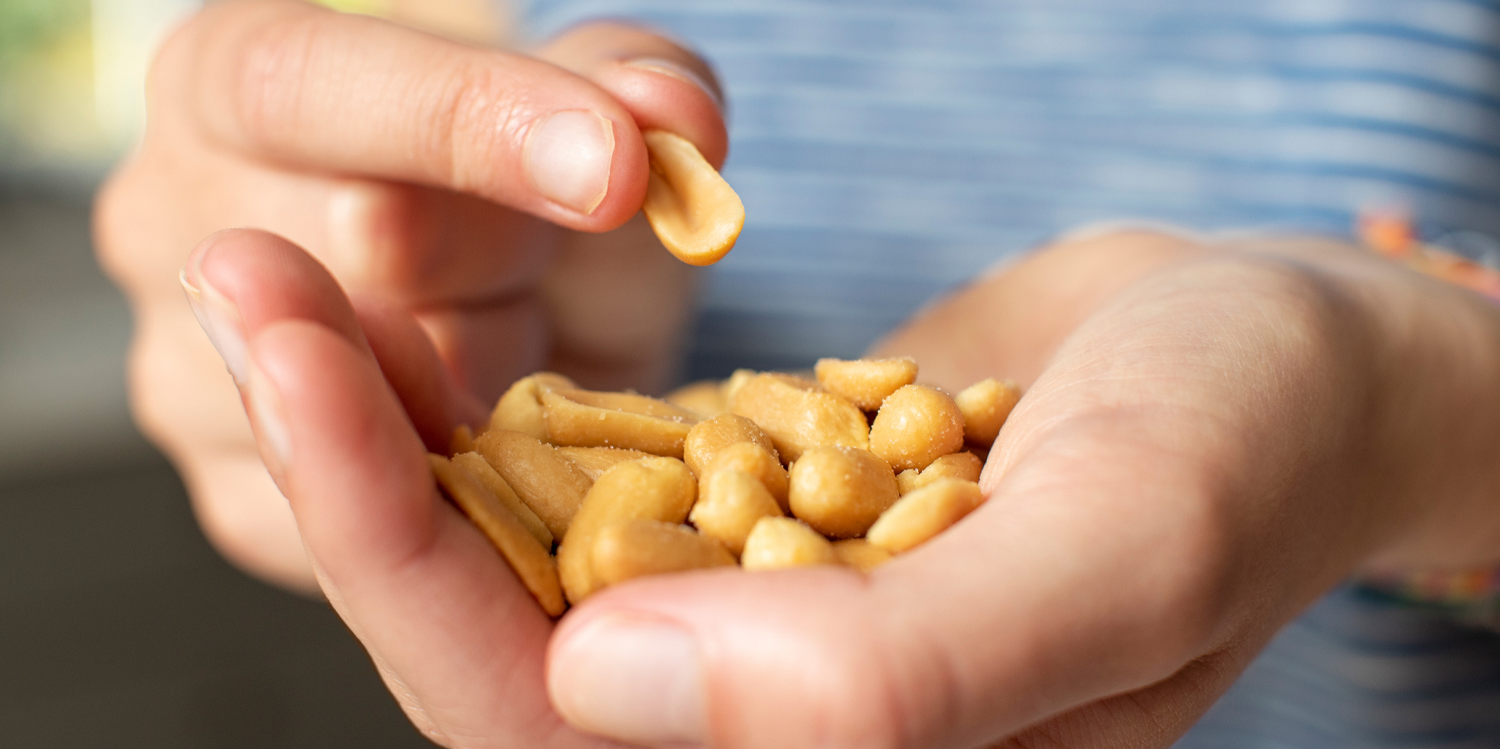 The advice around introducing allergens such as peanut butter and eggs may have changed about nine years ago, but some confusion remained. However, a new study hopes to provide further weight to the current advice.
The advice around introducing allergens such as peanut butter and eggs may have changed about nine years ago, but some confusion remained. However, a new study hopes to provide further weight to the current advice.
Research done by The Kids Research Institute Australia and published in the Journal of Allergy and Clinical Immunology – In Practice found families who introduce peanut butter and eggs to their baby’s diet at around six months of age can significantly reduce the chances of them developing a life-threatening allergy.
These results confirm the robust quality of the updated Australasian Society of Clinical Immunology and Allergy (ASCIA) Infant Feeding and Allergy Prevention Guidelines, providing confidence to parents about to embark on the feeding journey – even if they have a family history of allergies.
RELATED: WA babies offered peanut allergy treatment
Co-author and head of the nutrition in early life team at The Kids, Associate Professor Debbie Palmer, said that before 2016 the advice to parents was very different, with common food allergens generally introduced when babies were closer to 12 months of age or older.
“Australia’s guidelines were changed in 2016 to encourage the timely introduction of these common food allergens, based on a range of randomised controlled trials from around the world, including those conducted by my team on timely egg introduction in infant diets,” Associate Professor Palmer said.
“However, some parents are still confused about when to introduce allergens – especially those families with a history of allergies.”
Co-author Summer Walker said the study compared two groups of babies:
Group one consisted of 506 babies born between 2006 and 2014, who received no infant feeding advice and where egg and peanut butter were introduced after 10 months.
Group two consisted of 566 babies born between 2016 and 2022, where all families were provided with hard copies of the updated infant feeding and allergy prevention guidelines when the babies were six months of age.
RELATED: Ten-minute consult: Why is my baby always crying?
All babies had a first-degree relative with a history of allergic disease, and all were assessed for food allergies at age one.
“For the babies in group two – whose caregivers followed the updated guidelines and introduced peanut butter and egg around six months of age – egg allergy reduced from 12% to 3%, and peanut allergy reduced from around 6% to 1%,” Ms Walker said.
“The research backs up the ASCIA guidelines and gives confidence to parents and health professionals about how to approach introducing these foods.”
Ms Walker said the study results highlighted the benefits of directly providing parents and caregivers with hard copies of the updated guidelines and showed they should be widely distributed in the community via healthcare professionals, including child health nurses and GPs.
“By increasing the distribution of guidelines and encouraging health professionals to share the information, we can considerably reduce the incidence of food allergies in the community,” she said.
Want more news, clinicals, features and guest columns delivered straight to you? Subscribe for free to WA’s only independent magazine for medical practitioners.
Want to submit an article? Email editor@mforum.com.au

